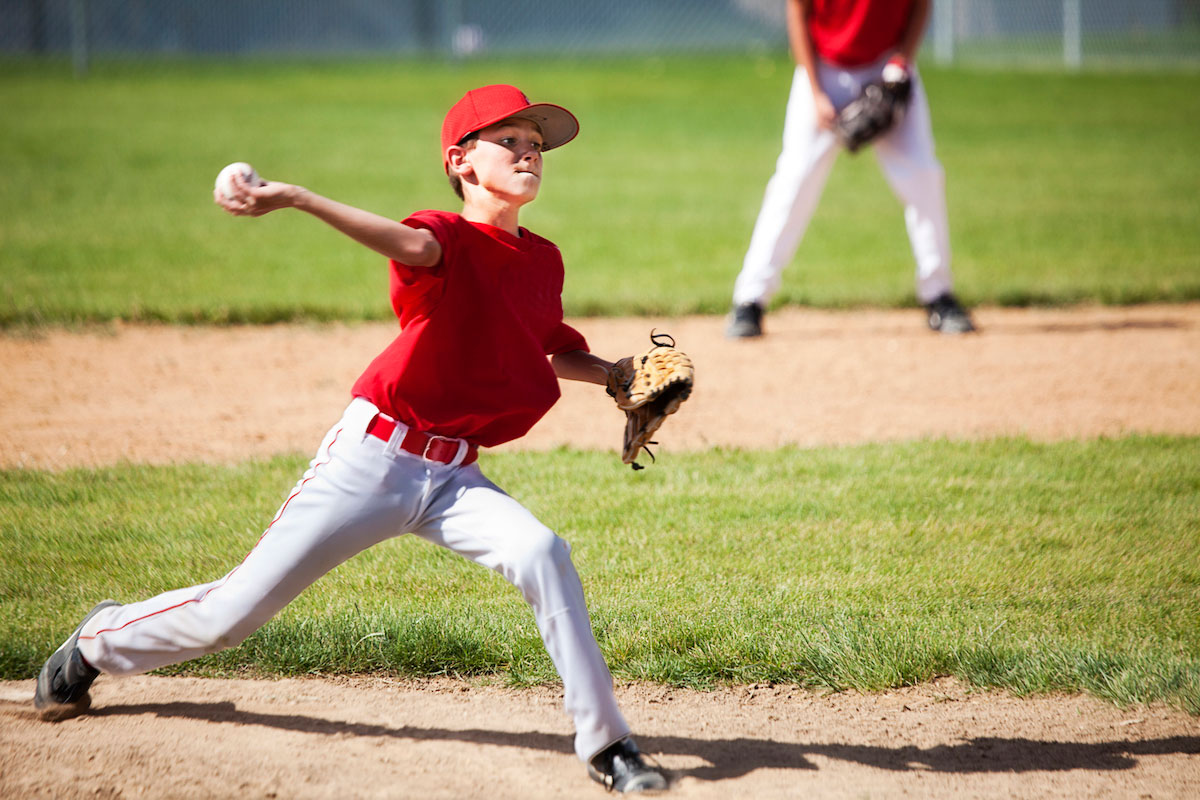Professional athletes are sorting out their seasons, your kids are cajoling to get back in the game and all you can envision is a COVID-19 nightmare.
We know infectious disease specialists say it’s safer to be outside where fresh air mitigates infection risk, but is it safe to start playing sports?
“We’re still seeing exponential increases in coronavirus cases across the country and need to practice caution and stay vigilant,” said Dr. Faiqa Cheema, assistant director of general infectious disease at Hartford Hospital. “We are still in the middle of a pandemic.
“No human interaction is completely risk-free as human beings are the vectors of this virus and continue to be the reason for sustained transmission. As cases continue to rise, the safety of playing sports may need to be revisited.”
Some sports – based on the level of personal contact involved – may be safe and others not, according to guidelines from a Centers for Disease Control and Prevention task force.
“The lowest level of risk in youth sports would be at home, practicing individual skills level drills,” said Dr. Grant Baldwin, co-leader of the task force. “The riskiest thing would be full competition, with no changes and no mitigation strategies implemented, and playing teams from different areas, in a travel team environment.”
While school officials grapple with fall classroom layouts, the National Federation of State High School Associations issued specific guidance for athletics, listing the potential for COVID-19 by sport.
This includes:
- Highest risk: sports involving close, sustained contact with others, such as lacrosse, football, wrestling, dance and competitive cheerleading.
- Moderate risk: sports with intermittent close contact or equipment that can’t be cleaned between participants, like baseball, basketball, gymnastics, ice hockey, field hockey, soccer, softball, tennis and volleyball.
- Lower risk: sports allowing for social distancing and no shared equipment, including skiing, golf, swimming, running, sideline cheerleading, field events and weightlifting.
Deciding when to restart sports must be based on your family circumstances, including whether there are vulnerable people living in the house, and the league’s approach to safety.
“Ask officials if there is a plan for cleaning shared equipment like bats and helmets, if players will maintain six feet distance when possible and if there will be a way to wash or sanitize player hands regularly,” Dr. Cheema said. “And outdoor sports are still preferred at this time.”
Although masks are only recommended for coaches, referees and spectators, there will be plenty of changes on fields and courts, such as prohibiting celebratory high-fives and hugs and breaking up clusters of players on the sidelines or in dugouts. Players not actively participating in the game should stand six feet apart. Other likely changes include:
- Temperature checks before games and practices.
- Smaller teams.
- Staggered practice schedules so teams don’t overlap on fields.
- Limited spectators.
- Limited, or no, travel competition.
- Waivers stating you understand team sports can increase your family’s risk of COVID-19.
Dr. Cheema urged players and parents to follow standard precautions against the virus whenever possible. Tuck hand sanitizer and sanitary wipes into your player’s bag and label water bottles and equipment so no one else picks them up by mistake.
“After playing, have your child wash their hands with soap and water for 20 seconds or clean them with hand sanitizer that contains at least 60 percent alcohol,” she said. “Then, clean and disinfect all equipment you bring home and wash uniforms as soon as possible.”
Not feeling well? Call your healthcare provider for guidance and try to avoid going directly to an emergency department or urgent care center, as this could increase the chances of the disease spreading.
Click here to schedule a virtual visit with a Hartford HealthCare-GoHealth Urgent care doctor.
Stay with Hartford HealthCare for everything you need to know about the coronavirus threat. Click here for information updated daily.
Questions? Call our 24-hour hotline (860.972.8100 or, toll-free, 833.621.0600).
Get text alerts by texting 31996 with COVID19 in the message field.




